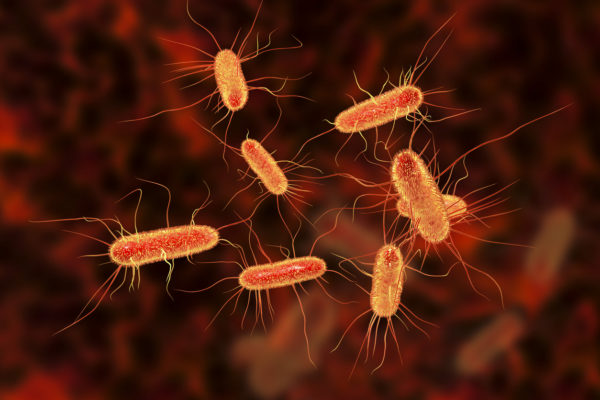AUSTIN, Texas — New research from The University of Texas at Austin’s College of Pharmacy may have discovered a way to repurpose an existing drug to fight the lethality of Shiga toxin-producing Escherichia coli, or STEC, infections.
Stopping the spread of Shiga toxins released by E. coli bacteria, which are potentially fatal if they reach the kidneys, has been a focus of researchers for years. No treatments for STEC currently exist, and antibiotic therapy cannot be used because it increases release of Shiga toxins from the bacteria. Approved antidotes are also not available to neutralize the effects of these toxins.
Somshuvra Mukhopadhyay, an assistant professor of pharmacology and toxicology, recently led research focused on understanding how the Shiga toxins enter human cells and cause cell death. That led to the discovery that tamoxifen, a drug approved by the Food and Drug Administration for treatment of other diseases such as breast cancer, potently blocks the capability of the Shiga toxins to invade human cells and cause disease.
The paper, “Tamoxifen blocks retrograde trafficking of Shiga toxin 1 and 2 and protects against lethal toxicosis,” was recently published in Life Science Alliance.
One significant advantage of these findings is that because tamoxifen is an existing drug deemed safe by the FDA, its use as a treatment to fight E. coli may reach patients more quickly than a brand-new medication.
“The ability to repurpose an old drug to treat Shiga toxicosis is exciting because it may be possible to advance this mode of therapy into clinical practice more rapidly than a new compound,” Mukhopadhyay said.
Subsequent studies showed tamoxifen protects mice against lethal Shiga toxicosis. If further research supports tamoxifen’s effectiveness in managing the spread of Shiga toxins, it may pave the way for treatment of humans with deadly E. coli. It may also be possible to combine tamoxifen with antibiotics to rapidly clear patients of STEC bacteria.
“We hope to license Dr. Mukhopadhyay’s discovery and make it available to the public. In the past year alone, the United States has experienced three major outbreaks of food-borne Shiga toxin-producing E. coli spanning 40 states,” said Kristin Falkenstein, a licensing specialist in UT Austin’s Office of Technology Commercialization. “It offers a promising therapeutic solution using an FDA-approved drug in the face of an increasingly prevalent epidemic.”
Infections by Shiga toxin-producing E. coli are a major cause of lethal food-borne disease in the United States. According to the Centers for Disease Control and Prevention, an estimated 265,000 people in the United States are affected by STEC each year, resulting in approximately 3,600 hospitalizations and 30 deaths.
The research team includes Andrey S. Selyunin, a postdoctoral research fellow in the College of Pharmacy’s Division of Pharmacology and Toxicology; Steven Hutchens, a research associate and lab manager in the Mukhopadhyay Lab; and Stanton F. McHardy, director of The University of Texas at San Antonio’s Center for Innovation in Drug Discovery.
The work was funded by a grant from the National Institute of Allergy and Infectious Diseases.




